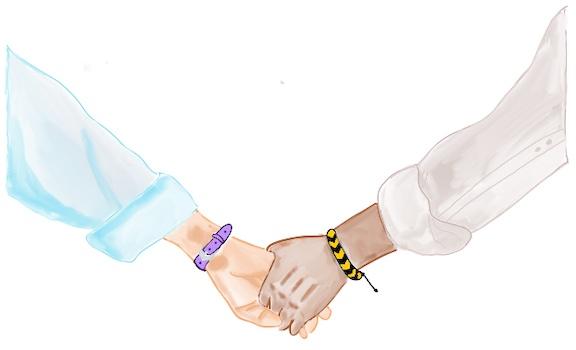Shortly before returning to campus for my junior year, I met up with a few old friends from high school for dinner. Some I hadn’t talked to since I started college. Unfortunately, some friendships, like ancient manuscripts in a museum, crumble the moment one tries picking them up again. That was the case with my friend, P.
In my memory, P. was down-to-earth, despite coming from a privileged background. She lives in one of the most wealthy neighborhoods in Hong Kong and spends her summer vacations in Germany and Austria, visiting palaces and seaside resort towns. However, she never talked about her wealth or possessions in front of us. In my mind, she wasn’t the type that cared about money or status.
Over dinner, we talked about the things we looked for in a partner. I said I wanted to find somebody that had different life experiences than mine, somebody interesting I can learn from. But before I even finished speaking, P. jumped in and asked me what I would do if that person’s family wouldn’t accept somebody from such a different background. She quickly added that she wasn’t talking about race or ethnicity, but more about social status.
I was startled. Then, I remembered she had said earlier that a number of her college classmates wouldn’t even date people outside their major. She is studying medicine and knows perfectly well just how much doctors make. On the other hand, everyone at that table knew what the income and job security of a journalist would likely be.
As the conversation moved on, I couldn’t get that brief exchange out of my mind. Economic inequality has been increasing in recent decades in many places all over the world: In the U.S., the top 10% of earners had incomes 12.6 times as much as the bottom 10% of earners in 2018, according to data from Pew Research Center. The World Social Report 2020 by the U.N. showed that income inequality was rising in most high-income countries and countries like China and India that are some of the most populated in the world.
In Hong Kong, where I come from, the contrast is stark: In 2018, it had the fourth largest number of high-net-worth individuals (people holding financial assets over $1 million) among all the cities in the world; however, there are also 1.4 million people living under the poverty line pre-intervention in 2019.
My conversation with P. showed that the wealth gap is not just an economic phenomenon, it destroys social cohesion as well. The Victorian British prime minister Benjamin Disraeli famously pointed out the “two nations” between the rich and the poor where “there is no intercourse and no sympathy; who are as ignorant of each other’s habits, thoughts, and feelings, as if they were dwellers in different zones, or inhabitants of different planets.” As the wealth gap widens, the two groups of people will continue to drift further away from each other. We will end up living in our own socioeconomic bubbles, stratified into classes that no longer recognize one another.
A nation is, as the political scientist Benedict Anderson put it, an “imagined community.” People are more likely to care for others in the community when they hold similar interests and share a common identity. But with the rich and everybody else growing further apart — living in different neighborhoods, working in different occupations, or in P.’s case, not even dating each other — the lived experiences of these groups will become more and more alien to each other. Even though they nominally live in the same country, in reality their lives are becoming mutually incomprehensible.
We are already seeing that phenomenon. After the 2016 presidential election, half of the country denigrated the other half as detached liberal, metropolitan elites, while the other half seemed uncomprehending of what the “left-behind” rural working class was thinking. The same atmosphere of recrimination and blame could be seen in the aftermath of Brexit. The declining support for liberal democracy all around the world in recent years may point to many people’s disillusionment with the inability of this political system to join the “two nations” together. The ideal “out of many, one” is increasingly looking like “out of one, many.”
Later on at our dinner, we somehow started sharing our impressions of each other. P. looked at me and in a slightly hesitating tone said that I still look the same, dress the same and have the same hairstyle as I did in the past. It was nearly amusing how she couldn’t come up with a single adjective. My mind flashbacked to a conversation we had years ago, when she listed all the personal characteristics that attracted her to befriend me. Now, she didn’t know what to say to me.
She lives in a world brimming with people like her, rich kids who are going to be richer later on, a world of ski trips and expensive restaurants. Her world is one I know nothing about. She already saw me as somebody rungs below her on the social ladder, while I viewed her as getting bafflingly out of reach. We live on such disparate planes that despite having years of friendly memories, we can’t talk to each other anymore.
As she was speaking, I suddenly realized our friendship had just disintegrated in front of our eyes. To make things worse, I wasn’t sure I minded.
In pursuit of racial and social equity, The Maneater encourages its readers to donate to NAACP Legal Defense and Educational Fund, a legal organization dedicated to fighting for racial justice through litigation and education. Donate at: https://engage.naacpldf.org/dBCvDTd9IEiXX_jPkmkT_w2
Edited by Sarah Rubinstein, [email protected]











